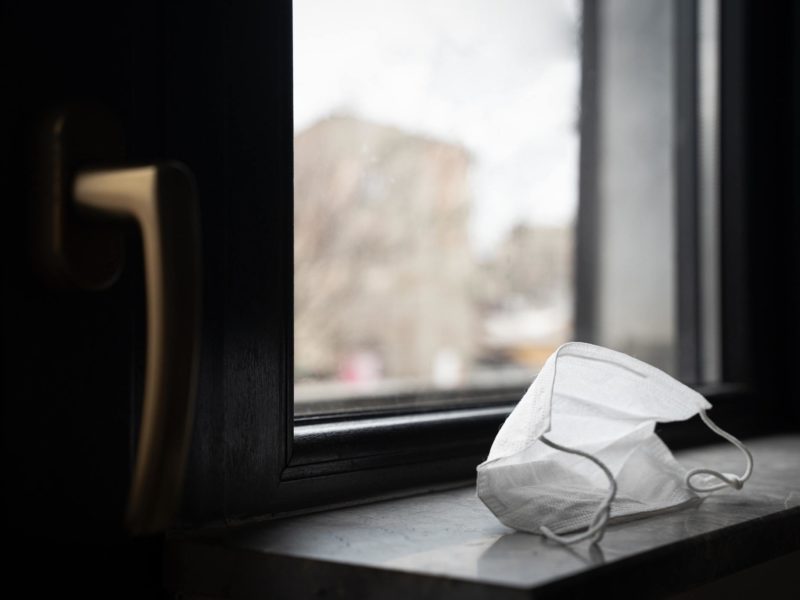Remaining Positive As Life Returns To ‘Normal’

As life beings to return to a version of normalcy amid the COVID-19 pandemic, a Texas A&M University mental health expert offers advice for reducing stressing and anxiety as outings and social gatherings increase.
“We have never been in this situation before, and anxiety is a normal response to the unknown,” said Cody Bruce, clinical assistant professor at Texas A&M College of Nursing. “So first, take a moment and validate those feelings. Being intentional in protecting the mental health of ourselves and our families is vital at this time.”
Different people respond to stressors in different ways. Bruce said research validates these feelings.
“Some will take on new tasks or clean their homes from top to bottom while others will binge watch Netflix from their couch to gain a sense of calm,” he said. “Both are healthy responses to stress. It is as beneficial for some of us to start a new hobby as it is for others to do less.”
Limit media time
Remaining informed about the novel coronavirus and precautions you should take is important, but Bruce explains how the constant access to information — whether from TV, radio or social media — can be a strong anxiety trigger.
“Being intentional about when you watch the news or read articles is essential,” Bruce said. “Reading a news feed before bed has been shown to impact the ability to fall and stay asleep. You can put off reading the news until the morning when you have time to process the latest health statistics.”
He said that balancing the negative press with the positive by incorporating something you enjoy into your daily readings can drastically impact your mood and mental health, for the better.
Stay connected with family and friends
“For the first time, many of us are experiencing loneliness, similar to how those isolated and homebound felt before the pandemic and continue to feel as social distancing continues,” Bruce said. To help reduce this feeling of loneliness, intentionally setting aside time to stay connected with friends and family becomes essential. Whether it is a routinely scheduled phone call, a closed group on social media or mailing letters, proactively taking steps to remain engaged with those you care for eases the sense of isolation.
Bruce has taken his own advice and started writing letters to his extended family, exchanging stories and photographs to bring loved ones together emotionally. “Being in touch offers an opportunity to help identify needs of family and friends, and have those needs met as well.”
Follow recommendations for workplace safety
As people return to work, a sense of uncertainty regarding the health and safety for themselves, their coworkers and those they serve remains. Bruce notes it is important to be aware of recommendations set by the Centers for Disease Control and Prevention (CDC) on social distancing, cleaning practices of common areas and options for wearing protective gear, like cloth face masks.
“Ask your supervisor what steps your office is taking to prevent the spread of COVID-19 and ensure a safe workplace. Businesses are creating plans to limit exposure and it is important you are aware of those plans, and that any additional questions you have are answered,” Bruce said. “Ultimately, no one wants to be placed in a situation that may risk exposure to COVID-19, and your company and supervisors share this concern.”
Communicate with child care providers
Returning to work also means children are returning to day care. Like all service-oriented businesses, day care centers and child care providers are required to take proactive measures in preventing the spread of COVID-19.
“Additional cleaning schedules are in place and there may be a decreased number of children allowed at the day care center due to the rules of social distancing,” Bruce said. “Parents and guardians should communicate with their day care center or provider about the specific cleaning practices and if there are any social distancing concerns.”
Bruce said there may be a screening test prior to entering the facility each day, which might consist of taking each child’s temperature and asking if they have any symptoms of the novel coronavirus.
Being mindful of your stressors, identifying ways you can incorporate routine, finding creative outlets to remain engaged with family and friends, and taking precautions to remain safe while returning to work and day care can help lessen the anxiety you may experience as you continue to practice social distancing and begin the transition to more normal activities once again.
Read the full story on Vital Record.
This article by Kala McCain originally appeared on Vital Record.





